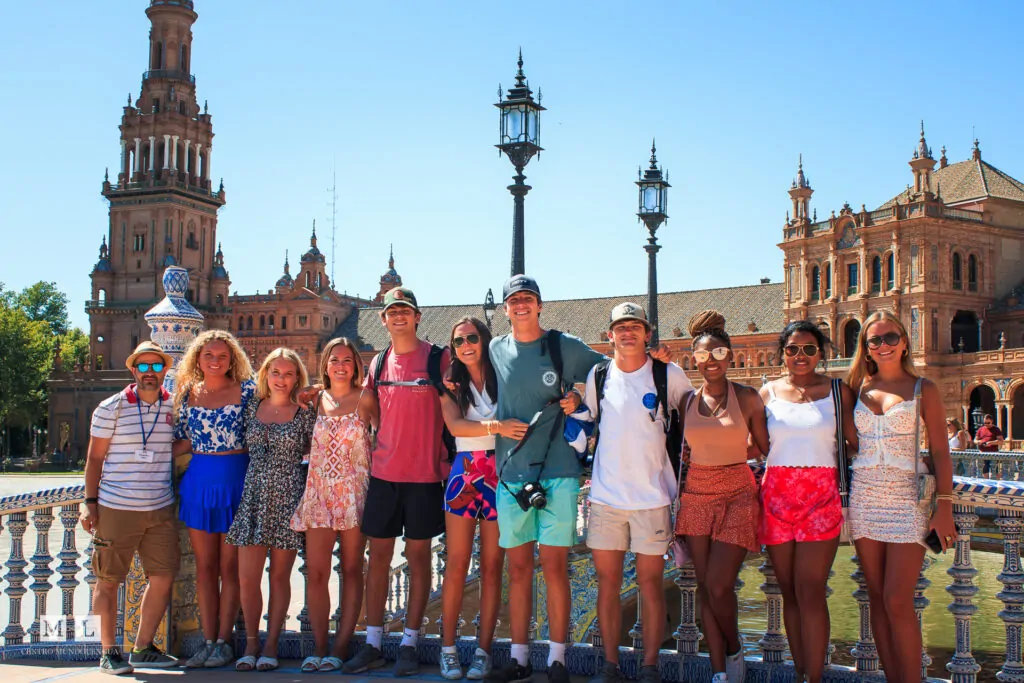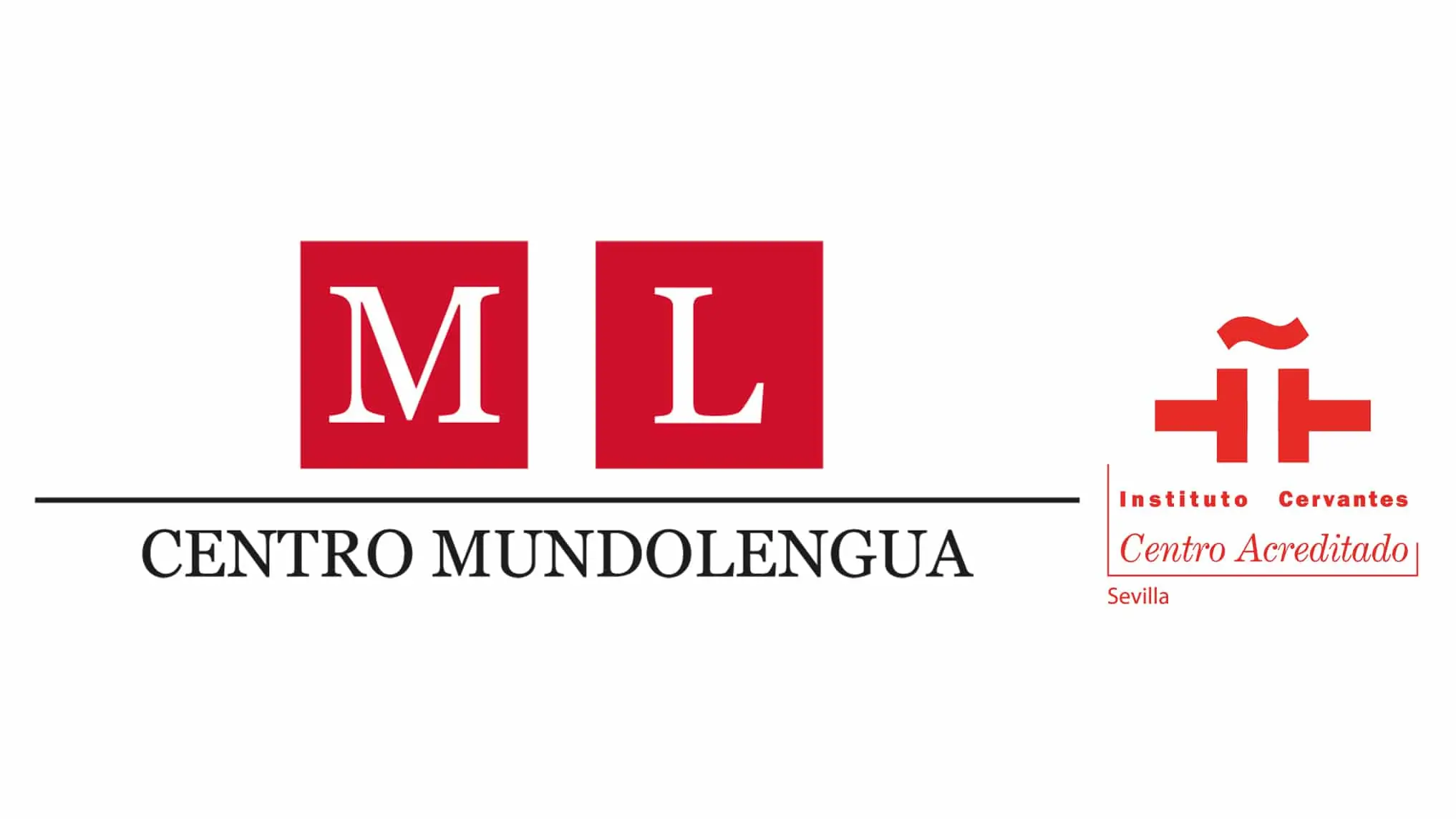10 Sep Planning Language School Trips Abroad?
Whether you want to organize a school trip abroad for high school or middle school students, you are in luck. Below, you will find 7 tips for planning a successful school trip in Spain with advice from two of our most beloved collaborators and expert travelers.
Since 2005, Centro MundoLengua has helped teachers and schools worldwide organize successful custom-designed study abroad programs, including everything from Spanish classes to cultural activities and tours to living with an actual local Spanish family.
Bibi Millet (“Bibi”) is a middle school Spanish teacher at Saint Andrew’s Episcopal School in Saratoga, California (USA). Born in Germany and raised in Mexico, she has experienced the advantages of speaking different languages and learning about different cultures by travelling and living abroad. As a result, she became a Spanish teacher and strives to transmit her love for the Spanish language to her students. She wants them to become global citizens and encourages them to travel and learn about different cultures from an early age.
Jessica Carr (“Jessica”), Spanish Department Chair and Teacher at Deerfield-Windsor School in Albany, Georgia (USA) is also a foreign languages enthusiast. She received her Masters in Hispanic Studies from Auburn University and now she is specialized in preparing students for AP Spanish. She has participated several times in The College Board Advanced Placement Summer Institutes (APSI) that Centro MundoLengua hosts in Sevilla and Madrid and has travelled with students since 2015.
What is the starting point to travel abroad with students?
In a word, what is needed most is enthusiasm. Without that initial push from teachers, students may not know where to start. Administrators and parents may be reticent to send students without adult supervision.
Bibi highlights “being keen for travelling and travelling with kids and inspiring parents with your enthusiasm as the guiding principles in this”. Likewise before introducing a potential trip to parents and students, it is important to define your overall goals. Both agree that “it is not just a trip to learn Spanish and boost their language skills through an immersion program; it is a trip to know the world, to teach them about a different culture and traditions, a different lifestyle”.
Where can you look for a reputable study abroad program or education tour provider?
In Spain, schools can opt to become Instituto Cervantes certified schools. This is a rigorous process by which schools must pass a comprehensive host of certification requirements every three years. This is a good place to start for teachers. Teachers can attend conferences to meet some of these schools. Schools may also want to subject potential programs to added vetting of their own. Teachers can ask for references from other teachers/schools, as well as read the online reviews for a school (Google Reviews, GoAbroad, Go Overseas, TeenLife).
“In my case”, recalls Bibi, “I met one of Centro MundoLengua’s directors, Yaye Baena, at a teacher’s conference. Yaye understood immediately what we needed: new ideas and customization”. This is our specialty at Centro MundoLengua: organizing custom study abroad programs in Spain.
Jessica, unfortunately, had a bad experience with another tour operator, but she did not give up and she found Centro MundoLengua in her research on the internet. She was looking for something more specific to offer to her pre-AP students. “Centro Mundolengua offered us an AP prep for Spanish Language as well as an AP prep for Spanish Literature program in Seville”, adds Jessica. For her intermediate level students, we suggested her a Spanish immersion program.
Do you need the school board or other teachers to get involved?
Depending on whether the school trip in Spain is school sponsored or not, it may be necessary to present the study abroad program to the school board. This will vary from school to school. Teachers travelling with kids will typically travel with other chaperones on the program, so it makes sense to spread the word early among others in the department.
Bibi suggests that planning a trip project for students can be somewhat challenging, although much easier with Centro MundoLengua. The project must be well thought out in order to be able to present to the board (if necessary and well in advance – up to a year ahead of time), parents and students. Let our experienced team help you think of all the possible challenges in organizing your trip.

How do you build interest in a school trip abroad among students and parents?
Above all else, teachers need to spread the word. You can do that in a number of ways including: speaking to parents at back-to-school events to present the idea; entering into the different Spanish classes and speaking directly to students about the trip; putting up special flyers announcing the trip around school; holding special interest sessions after school or at night with parents and students.
For this kind of event, “ask Centro MundoLengua to present the program either in-person or through Skype/Zoom/Google Meets”, suggest Jessica and Bibi. Involving past students is another key element in the promotion of future trips. Students love to hear the firsthand experiences from other students who have participated in study abroad programs.
Which is the procedure to manage paperwork and payments?
Some schools will want to handle this internally. “For those that do not want to touch any paperwork, Centro MundoLengua will take care of everything from the online application process to travel insurance for school trips abroad. Everything processed through a safe and secure online process, where each participant will have access to a private portal with all of their information”, explains Mrs. Millet.
How much does the teacher get involved during the trip?
This will vary from school to school, according to their requirements. Our study abroad programs are full immersion. They include a well-balanced mixture of Spanish classes, cultural tours, and activities that give students the chance to socialize and make new friends. All activities are led by our coordinators, and students and host families have 24/7 assistance from a team of experienced teachers and guides.
With students from Deerfield-Windsor taking part in our school trip in Spain, Jessica has had more free time to participate in our College Board APSI for AP Spanish teachers. “If the teacher has their own program, students don’t rely as much on them, pushing them to leave their comfort zone. It is also the comfort in knowing that the students are well taken care,” highlights Jessica.
Once back home and back to school, how do you spread the word about the trip abroad?
“Before our departure, we create a blog where students can post and parents can follow our day-to-day activities with pictures from the trip. Upon our return, we produce a book where we collect all the pictures and students’ posts as a trip souvenir. In addition, the students make a presentation where they recount their experience in front of the whole school,” details Bibi.
Do you have the enthusiasm to start? Let’s get to work on building the perfect school trip abroad for your students! Contact us today.








